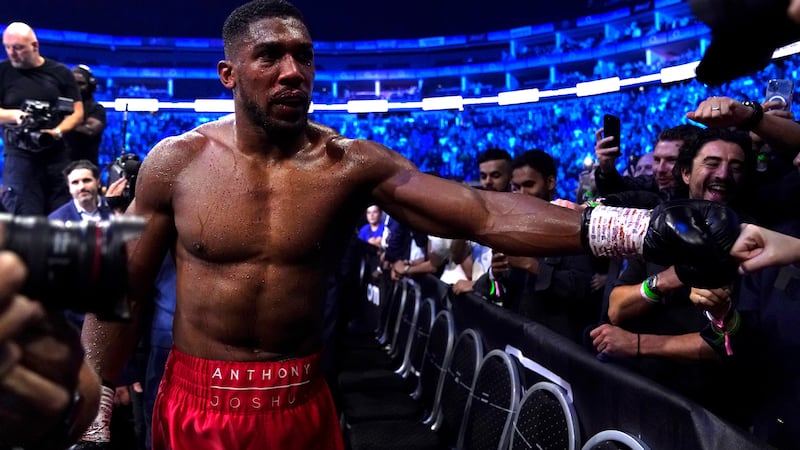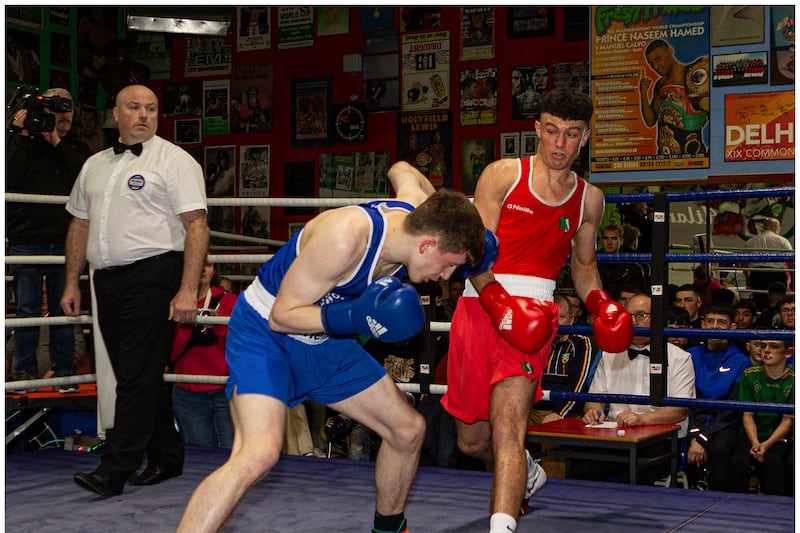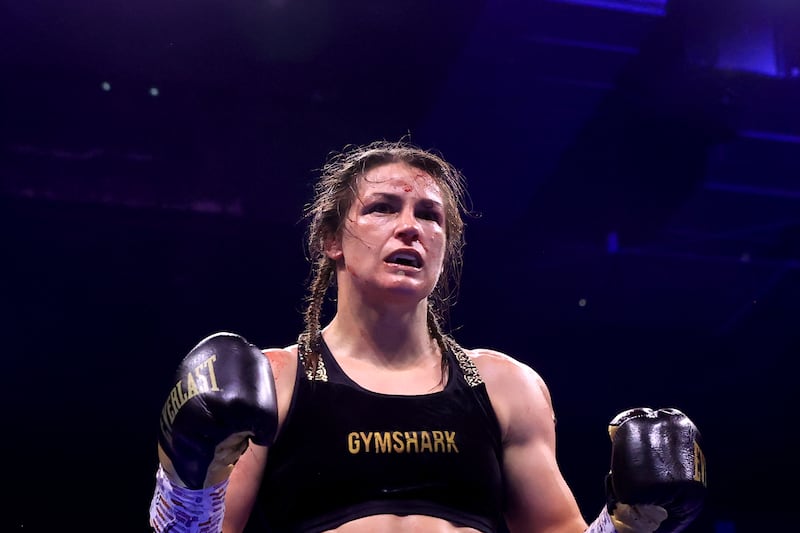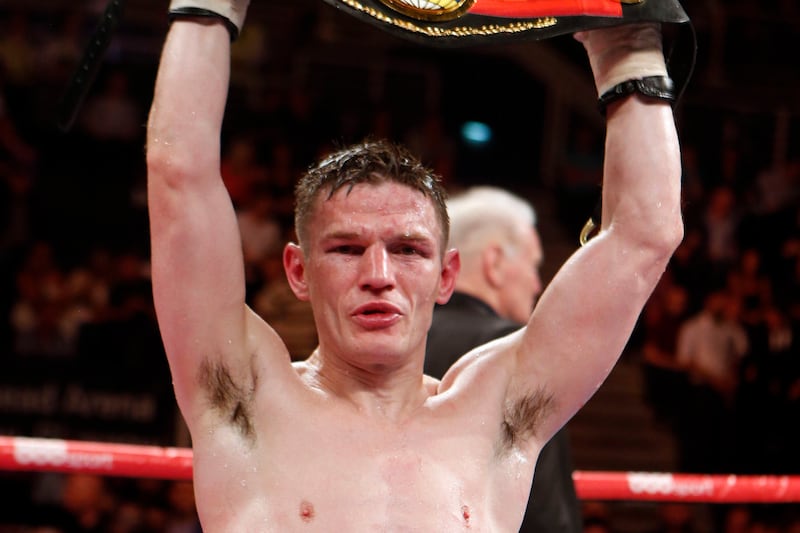CHARISMA can come in many forms. The traditional notion is of someone with movie star cool, maybe that John F Kennedy combination of dashing good looks and off-the-cuff ability to instantaneously grab people by the gut, no matter where or what the occasion.
Muhammad Ali was another level entirely. That beautiful face and winning smile, allied to a linguistic flow and magnetism that transcended the sporting arena, put the world on notice. And those qualities transferred effortlessly to the boxing ring, where the grace to float like a butterfly and sting like a bee was steadfastly supported by the heart of a lion when battle demanded.
Long before social media could make a star of anybody, Ali arrived on the scene like something from another planet. Should we ever see anything approaching his like again, we will be truly blessed.
Contrast that with someone like Lionel Messi. Shy and introverted, the little Argentine has always had the cut of that bashful kid from school who spends more time staring at his laces than the whites of others’ eyes.
Yet with a ball at his feet, before 80,000 baying spectators or no-one at all, the force of his personality finds full voice in a place where instinct and self-expression are all that matter.
A window into Messi’s particular brand of charisma came in the bowels of Wembley Stadium, about 45 minutes after he had delivered a mesmerising masterclass in Barcelona’s 2011 Champions League final victory over Manchester United.
Pep Guardiola had just entered the press conference room to deliver his assessment but was swiftly upstaged as, with journalists hurriedly placing dictaphones on the desk before the Barca manager, a door just to the right crept open.
In walked Messi, still in full kit, long hair stuck to his head, the absence of boots only accentuating his diminutive frame, lending to the little boy lost feel as he plodded forth in blaugrana socks that looked two sizes too big.
He had been asked to come in and receive some kind of award, but clearly wasn’t expecting to be met with a sea of stunned faces trying to pretend it was no big deal.
Like a nervous child on sports day, Messi bowed his head and half-smiled when the award was handed over, muttering a few words of Spanish before taking his leave. A collective exhalation sounded as the door swung to a close, the presence of greatness – even when so understated – drawing breath from the room.
Anthony Joshua is cut from the Ali cloth, at least in terms of stature and style. When he burst onto a heavyweight scene that had been largely controlled by the rangy, risk-averse Klitschko brothers, it was hard not to be intoxicated by his potential.
Having only taken up the sport at the age of 18, it was Joshua’s rawness, as well as his obvious physical attributes, that were his greatest assets. There was a fearlessness and a ferocity to the way he went about his business, one opponent after another laid to waste.
By the summer of 2016, the Joshua hype train was gathering significant speed.
A few months after smashing Charles Martin to bits in his first world title fight, he travelled to Rio de Janeiro to work alongside the BBC, as well as supporting former GB team-mate Joe Joyce in his bid to emulate Joshua’s Olympic gold medal triumph in London four years earlier.
Standing outside the media tent behind the Riocentro pavilion, Joshua was never without company. Everybody wanted a piece of him.
Like awaiting an audience with the Pope, I grabbed a few minutes at one stage, clambering up onto the fourth step beside the entrance while he kept his feet firmly on the ground, arms resting on the railing. It wasn’t a bother on him.
Michael Conlan’s controversial exit had hit the headlines a few days earlier, and Joshua talked away about the decision, where Conlan’s mind might be at, and what the future held as the Belfast boy prepared to move into the paid ranks.
There was an inescapable sense that Joshua was enjoying every minute of his new-found fame, his easy personality well suited to the attention that continued to come his way.
Fast forward seven years and there is a different look in his eyes.
The undeniable high point of his career came eight months after Rio, but the same night also marked the beginning of the end.
Wladimir Klitschko, even in the wake of 2015 defeat to Tyson Fury, remained a gatekeeper of the division. Boasting similar physical dimensions, he was the man Joshua had looked up to, had sparred during countless camps in the Austrian Alps, had admired in terms of the way he conducted himself inside and outside the ring. Klitschko was the benchmark.
And when they met in April 2017, Joshua beat him, a sickening right uppercut starting the onslaught that saw a brilliant, brutal fight stopped in the 11th round. Taking the microphone while doing a victory lap of the Wembley ring, Joshua’s handful of words were every bit as impressive as the performance, perfectly summing up his journey, and the vulnerabilities that made him such a draw across the board.
“Three-and-a-half years in the game,” he said, taking a breath as the huge crowd hung on every word, “I’m not perfect, but I’m trying…”
Yet, even in defeat, Klitschko took a confidence and conviction from Joshua that would never return.
Dropping him heavily in the sixth round - the first time Joshua had hit the canvas as a pro - only the Ukrainian’s innate caution prevented him from finishing the job as his opponent appeared concussed for much of the next three rounds.
That kind of test was always going to be the barometer of where Joshua would go. The killer instinct that placed him among the most feared men in the division has ebbed away over time, a seventh round American debut destruction by Andy Ruiz sending shockwaves through those ignorant of the signs of decline.
Where Wladimir Klitschko’s answer to stunning knockout defeats against Corrie Sanders and Lamon Brewster was the switch to a safety-first style that served him so well, Joshua simply does not have those tools at his disposal – and, against the best in the division, he never will.
The bizarre tantrum that followed a second defeat to Oleksandr Usyk, and claims of carrying the heavyweight division in the wake of Saturday night’s knockout win over Robert Helenius, smack of frustration and a growing awareness that he may never recover what he once had.
Exiting the ring on Saturday night, nose bloodied, lip swollen, Anthony Joshua looked lost. And yet still he believes boxing needs him.
The bigger question is whether Anthony Joshua still needs boxing.









